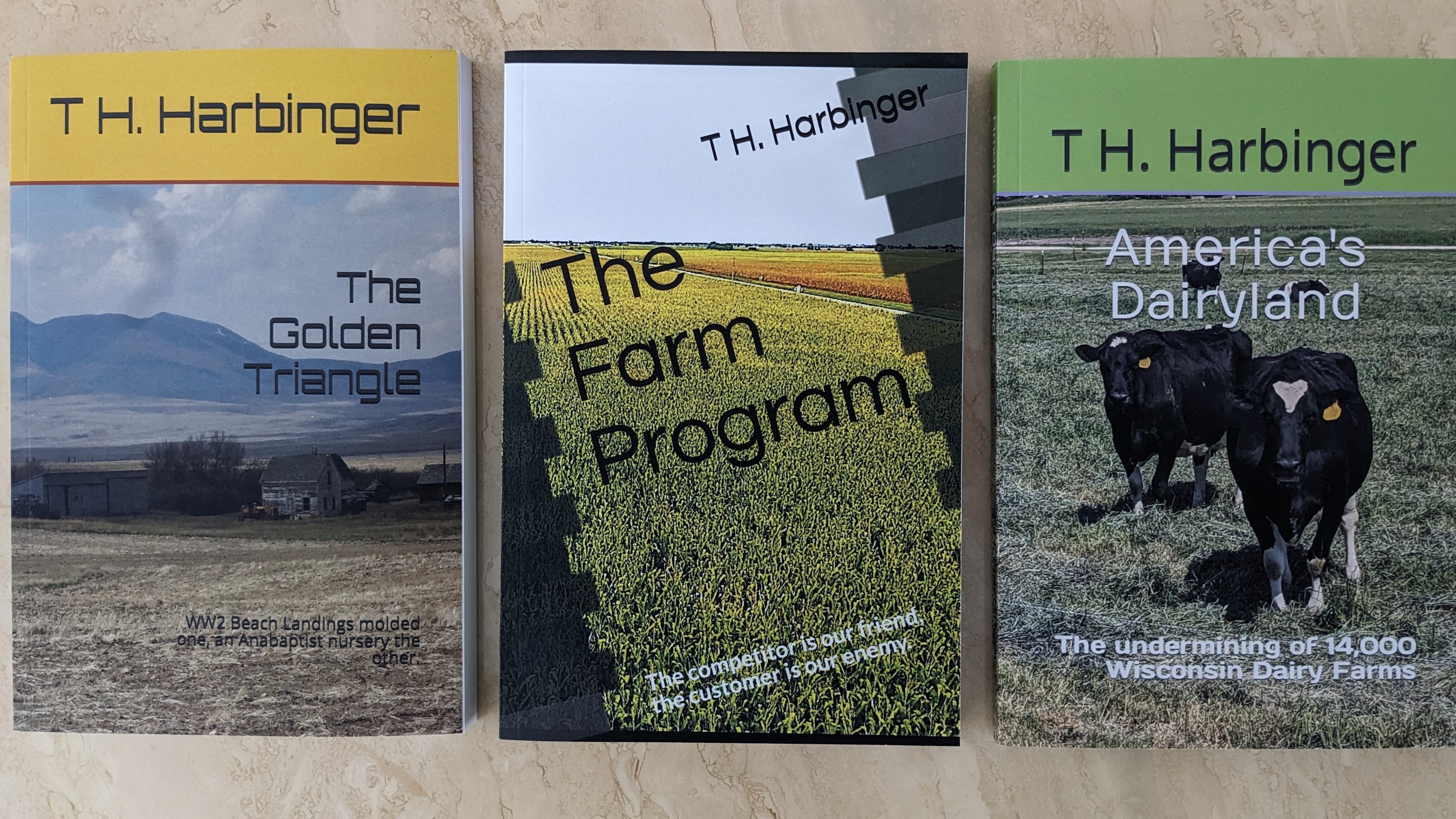. T. H. Harbinger’s recent books offer readers a deeper understanding of how USDA programs steer U.S. taxpayers in the wrong direction. These policies have led to the demise of thousands of family farms and the unhealthiest lives while destroying the environment.

A recent press release** spotlights the pressing issue of industrial agriculture's impact on Earth's delicate ecosystems. Simultaneously, T. H. Harbinger's recent publications (https://www.insightsoninnovation.net/services-4) delve into the intricacies of USDA programs, shedding light on how these initiatives may be exacerbating the problem rather than offering sustainable solutions.
Short Story: Midwest Realities from Harbinger's Perspective
Harbinger paints a vivid picture through real-life stories, particularly focusing on the Midwest, showcasing how USDA programs may be inadvertently contributing to environmental degradation and challenging the long-held belief in the efficacy of current agricultural practices.
T. H. Harbinger's recent books provide a comprehensive examination of USDA programs, questioning their alignment with the pressing need for agricultural sustainability. Drawing on meticulous research, Harbinger offers insights into the shortcomings of current approaches, urging readers to reconsider the trajectory of U.S. agricultural policies.
Harbinger's works not only scrutinize the existing problems but also propose alternatives aligned with the frugality, reconnection, and agroecology advocated in the Phys.org press release. These concepts, when examined through Harbinger's critical lens, offer a roadmap for transforming the agricultural landscape.
The Frugality Factor: Doing More with Less
Frugality in agriculture isn't about sacrificing productivity; it's about optimizing resources wisely. By reducing waste, minimizing the use of harmful inputs, and embracing sustainable practices, a more resilient and efficient agricultural system is created.
Reconnection with Nature: A Vital Component
Highlighting the need for reconnection, the press release suggests that agriculture must align with natural processes. Embracing biodiversity, regenerative farming, and respecting ecological cycles will not only ensure food security but also foster a healthier environment.
Agroecology: Cultivating Harmony
The call for agroecology promotes a harmonious integration of ecological principles into agriculture. By mimicking natural ecosystems, agroecology enhances soil health, promotes biodiversity, and reduces dependency on synthetic inputs—leading to a more sustainable and resilient food production system.
A Global Call to Action: Leveraging Harbinger's Research for Change
T. H. Harbinger's books become valuable resources for understanding the intricacies of USDA programs and their potential detriments. The call to action is clear: it's time to leverage Harbinger's research to guide a paradigm shift in global agriculture.
For those seeking a platform to delve deeper into Harbinger's insights, Insighsoninnovation.net emerges as an invaluable resource. With its commitment to thought-provoking content and global collaboration, the platform provides a space to explore the intricacies of USDA programs and engage in discussions that can shape the future of agriculture.
In summary, the recent press release advocating for a shift in global agriculture finds resonance in T. H. Harbinger's recent books. By examining USDA programs through Harbinger's critical lens, everyone will gain a deeper understanding of the challenges and opportunities that lie ahead, making informed choices for a more sustainable and resilient agricultural future.
Gateway to Agricultural Transformation: https://www.insightsoninnovation.net/services-4
** How industrial agriculture is disturbing the nitrogen cycle and undermining conditions for life on Earth, https://phys.org/news/2024-01-industrial-agriculture-disturbing-nitrogen-undermining.html
